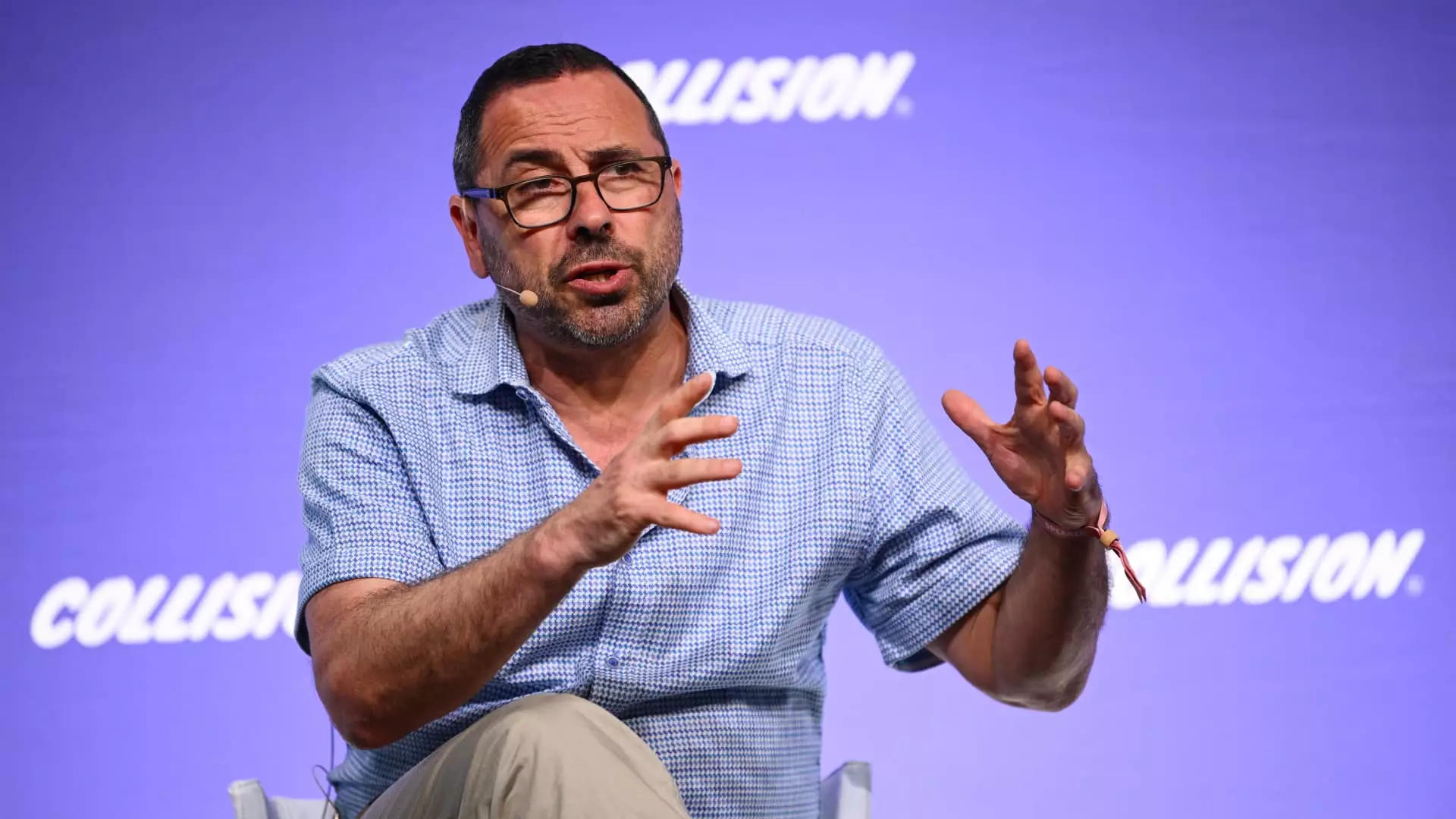The rapidly evolving landscape of artificial intelligence (AI) has generated immense interest from investors, particularly in high-performance computing segments. Cerebras, a tech company known for its AI chip manufacturing, is attempting to capitalize on this frenzy by becoming the first significant venture-backed firm to undertake an initial public offering (IPO) in the United States since the early months of 2023. However, the road ahead is riddled with challenges that could impede its path to success.
Market Context: Riding the AI Wave
Cerebras emerges at a time when companies like Nvidia dominate the market with staggering valuations, now reaching $3.3 trillion. Given this backdrop, there is a palpable eagerness among investors aiming to get a piece of the burgeoning AI infrastructure sector. Cerebras’ valuation, which peaked at $4 billion in 2021, indicates substantial growth potential. Reports suggest the company aims to almost double this figure during its IPO, yet its journey is complex and multifaceted.
The allure of Cerebras lies in its technological innovation. Founded in 2016 and based in Sunnyvale, California, the company made headlines in 2019 with the introduction of its first processor. Since then, it has claimed that its chip technology surpasses traditional graphics processing units (GPUs) like those produced by Nvidia, particularly for training large language models.
Cerebras has shown impressive sales growth, with revenues more than tripling to $78.7 million in 2023 and further climbing to $136.4 million in the first half of 2024. The company’s ability to secure pre-sold agreements amounting to $1.43 billion demonstrates a promising outlook. Nevertheless, this success comes with a significant caveat—Cerebras generates an alarming 87% of its revenue from a single client, G42, a company based in Abu Dhabi, UAE. This heavy reliance on one customer raises serious questions regarding sustainability and risk.
Investors are naturally wary of such dependency, and concerns are exacerbated by G42’s ties to Microsoft and the complexities related to potential national security issues due to its foreign connections. Cerebras is seeking approval from the Committee on Foreign Investment in the United States (CFIUS) for further investment and transaction inclusion from G42, but the uncertainty surrounding this process adds weighty layers of risk to Cerebras’ public offering aspirations.
The prospect of regulatory scrutiny magnifies the challenges Cerebras faces. With rising tensions regarding foreign investments in U.S. tech firms, legislators have expressed unease over G42’s past affiliations, particularly concerning China. The uneasiness surrounding G42’s historical investments is critical, as lawmakers continue to watch for any links to Chinese military entities or intelligence organizations.
While G42 maintains that it divested from Chinese interests to gain favor with U.S. policymakers, lingering doubts remain. This scenario illustrates how external political environments can impede the financial ambitions of tech companies, particularly those navigating the complex terrain of AI and international partnerships.
The Underwriting Landscape: A Barrier for Cerebras
Cerebras’ IPO takeoff is hindered further by its choice of underwriters. Major Wall Street banks, including Goldman Sachs and Morgan Stanley—titans known for handling tech IPOs—are notably absent from Cerebras’ deal structure. This exclusion raises eyebrows about investor confidence and the perceived viability of the offering amidst concerns regarding customer concentration and foreign investment.
Barclays and Citigroup are stepping in as lead underwriters, which, while they are capable institutions, do not typically hold the prestige associated with primary tech deals. Furthermore, Cerebras is working with BDO as its auditor, a firm outside the “Big Four” accounting firms, which can also add a layer of skepticism for potential investors.
Despite the troubling red flags, there remains an inherent optimism regarding Cerebras, largely driven by the heightened demand for AI-enhanced technologies. The sentiment in the market for AI chips is buoyed by a lack of viable alternatives and a recognition that the sector holds significant promise. Cerebras boasts groundbreaking technology, particularly its WSE-3 chip, which the company touts as the fastest AI processor currently available, with 4 trillion transistors.
Cerebras’ narrative is not without its supporters either; retail investors like Jim Fitch express enthusiasm surrounding the company’s technology and its potential to disrupt the market dominated by Nvidia. With market conditions appearing favorable and a diminishing number of investable options, there is cautious hope for Cerebras to navigate this convoluted landscape effectively.
While Cerebras stands poised at the forefront of AI innovation with path-breaking technology, it must grapple with substantial risks stemming from a lack of diversification, regulatory scrutiny, and investor hesitancy amidst a competitive sector. The journey leading to its IPO will not only test its operational resilience but will also provide vital insights into the complexities of tech investments in today’s geopolitical environment.

